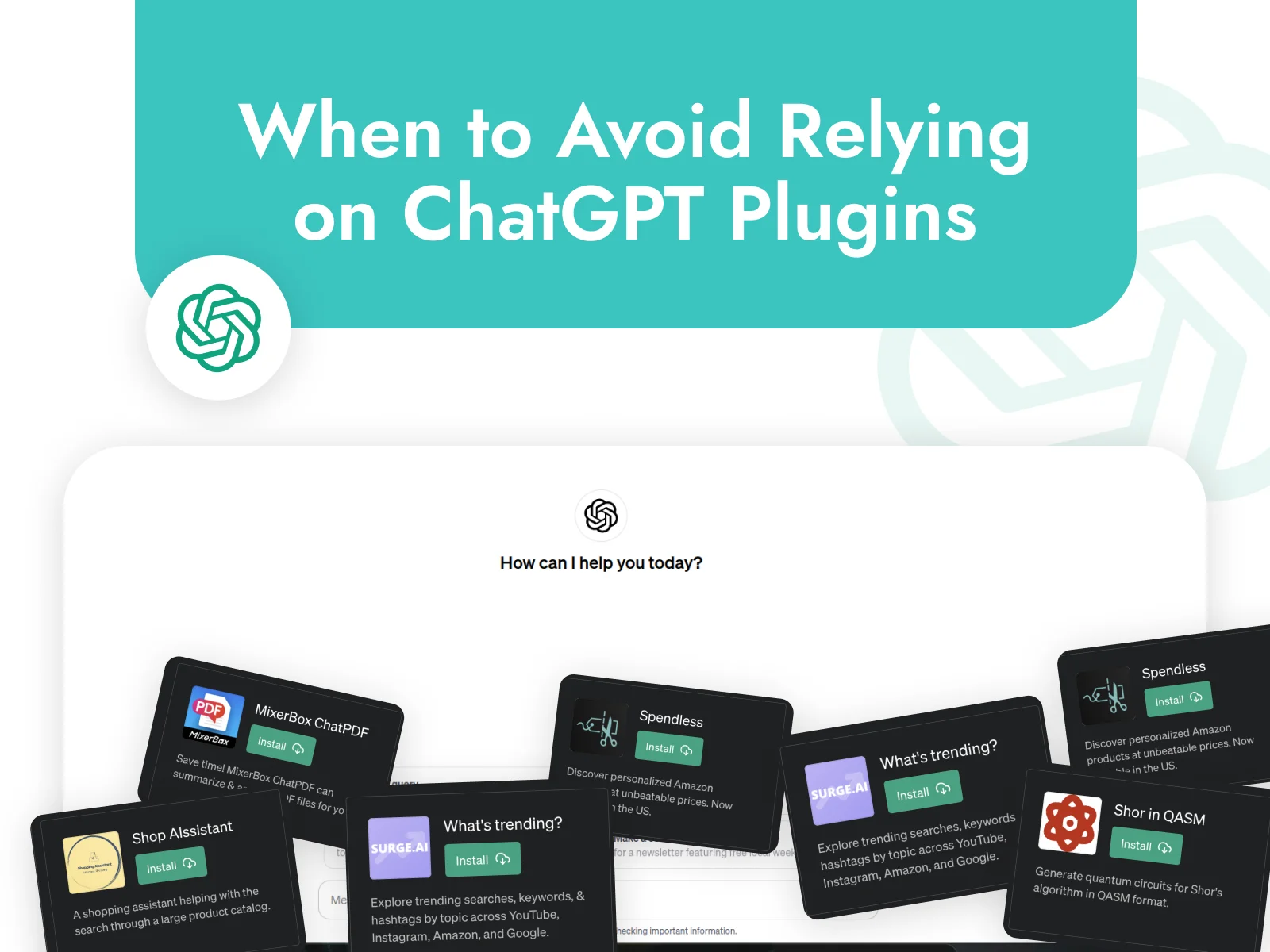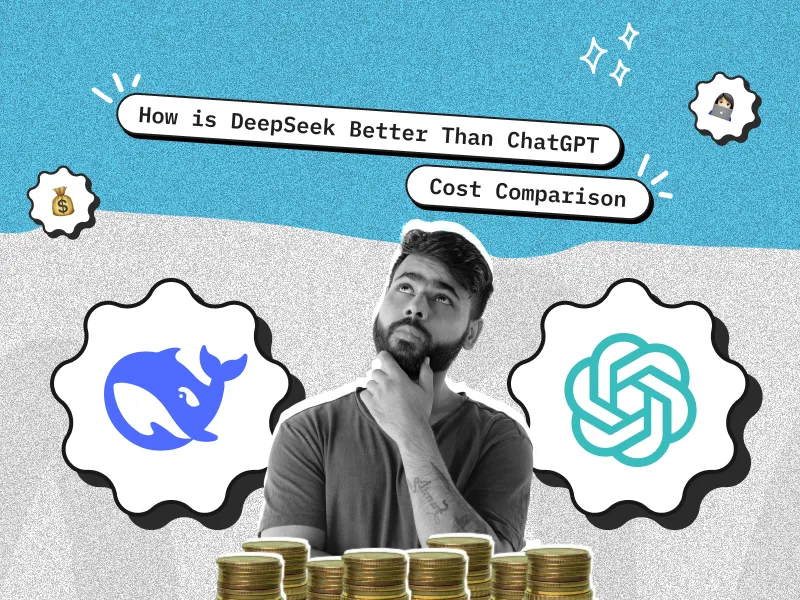Summary:
When considering the use of ChatGPT plugins, it’s crucial to recognize their limitations. Avoid relying on them for mission-critical tasks requiring unwavering reliability during potential external API downtime. Exercise caution with plugins involving sensitive data due to potential privacy concerns. Additionally, consider the variability in quality, the potential for inaccurate information, and performance issues, especially if swift responses are paramount.
Introduction
ChatGPT plugins have opened up new horizons in AI interactions, offering enhanced capabilities and diverse functionalities. However, like any technological advancement, they come with their own set of limitations. Understanding these constraints is crucial for users to make informed decisions about when and how to use ChatGPT plugins effectively.
In this blog, we’ll explore the 5 key limitations of ChatGPT plugins and scenarios where they might not be the best tool to use.

5 Key Limitations: When to Avoid Relying on ChatGPT Plugins
1. Dependence on External APIs
One significant limitation of ChatGPT plugins is their reliance on external APIs. This dependence means that if an API experiences downtime or performance issues, the plugin’s functionality can be severely impacted. For instance, if you’re using a plugin connected to a stock market API for real-time data, and the API goes down, the plugin becomes ineffective. Users need to be aware of this dependency, especially in critical applications where consistent performance is non-negotiable.
When Not to Use: Avoid using ChatGPT plugins for mission-critical tasks where reliability is paramount, and the risk of external API failure can lead to significant consequences.
2. Data Privacy Concerns
ChatGPT plugins often require access to personal or sensitive data to function optimally. However, this raises data privacy concerns, as third-party plugins may not always have robust security measures in place. Users should be cautious about the data they share with plugins, especially those developed by less-known entities.
When Not to Use: Refrain from using ChatGPT plugins when they require access to confidential or sensitive information that you cannot risk being compromised.
3. Quality and Sophistication Variability
The quality and sophistication of ChatGPT plugins can vary greatly. Some might be highly advanced and reliable, while others could be rudimentary and experimental. This inconsistency can be challenging for users seeking a uniform and predictable experience.
When Not to Use: Avoid relying on ChatGPT plugins for tasks requiring a high level of sophistication and consistency, especially if the plugin is relatively new or untested.
4. Potential for Inaccurate Information
While plugins can enhance ChatGPT’s ability to provide accurate information by connecting to external data sources, they don’t eliminate the possibility of the AI model generating inaccurate or hallucinated responses. This is particularly true for plugins that integrate less reliable data sources.
When Not to Use: Be cautious in using ChatGPT plugins for decisions that require absolute accuracy or where misinformation could lead to serious repercussions.
5. Performance and Speed Issues
Early generations of ChatGPT plugins are often slow and clunky, affecting the overall efficiency of tasks. This is a crucial factor for users who need swift responses and actions.
When Not to Use: If speed and immediate response are critical for your tasks, it may be better to avoid using ChatGPT plugins until their performance improves with future developments.
Conclusion
In the dynamic realm of AI, the collaboration between users and ChatGPT Developers is crucial when leveraging ChatGPT plugins. Acknowledging their potential pitfalls, such as external API dependencies, privacy concerns, variability in quality, information accuracy, and performance issues, is paramount. Users must exercise discretion, refraining from plugin reliance in critical scenarios. As the ChatGPT ecosystem evolves, user awareness and thoughtful integration, in collaboration with ChatGPT Developers, will contribute to a more robust and effective AI landscape. For inquiries, feedback, or support, please don’t hesitate to contact us.











 30 mins free Consulting
30 mins free Consulting 
 11 min read
11 min read 


 Canada
Canada 





 Love we get from the world
Love we get from the world 